Class 8 Exam > Class 8 Notes > English Class 8 > Antonyms - Vocabulary
Antonyms - Vocabulary | English Class 8 PDF Download
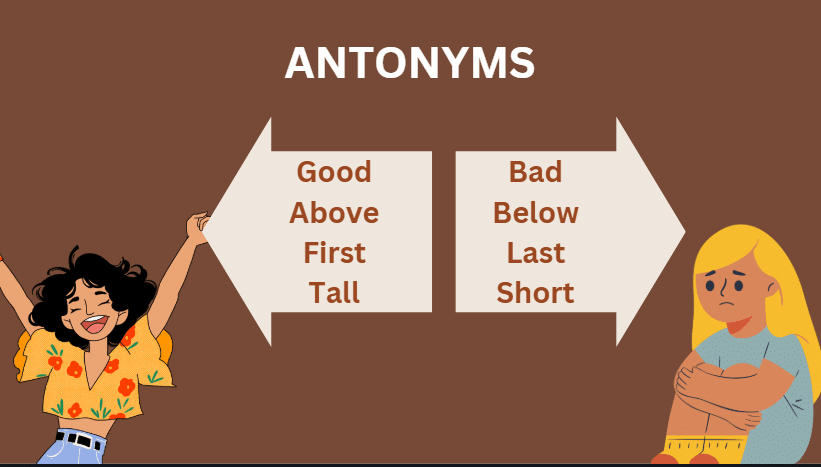
What is an Antonym?
Words that have completely opposite meanings are called antonyms.
- For instance, the word abrasive has several antonyms such as smooth, soft, and polished.
- Antonyms cannot be swapped with each other because doing so would change the meaning of the sentence to its opposite.
Why are Antonyms Used?
- Using antonyms helps make our communication clearer and more accurate.
- Learning and using antonyms expands our vocabulary.
- Our language becomes richer and more flexible as we learn to express a wider variety of ideas and emotions.
- Antonyms allow us to compare different concepts within our content.
- The differences in meanings are emphasized when we use antonyms.
Here are the words which are having different meanings:
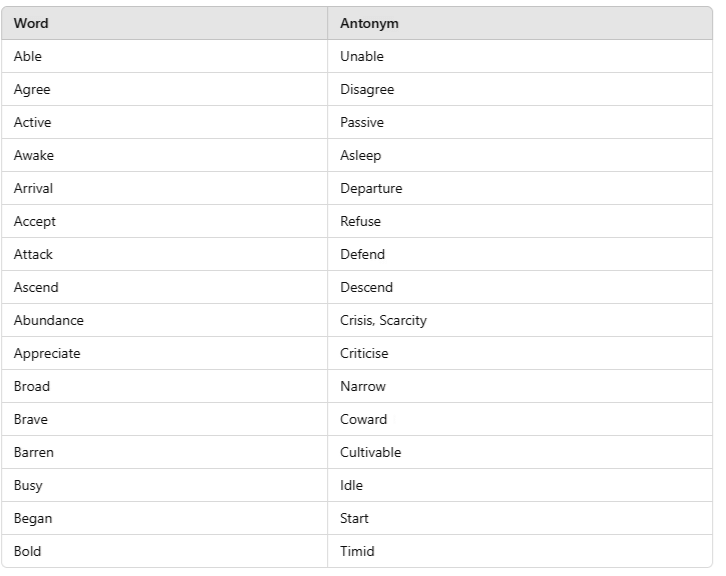
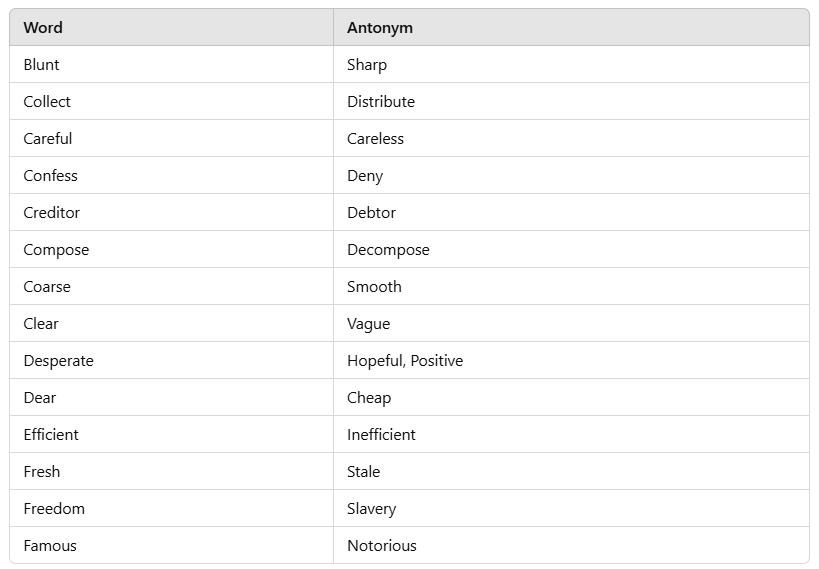
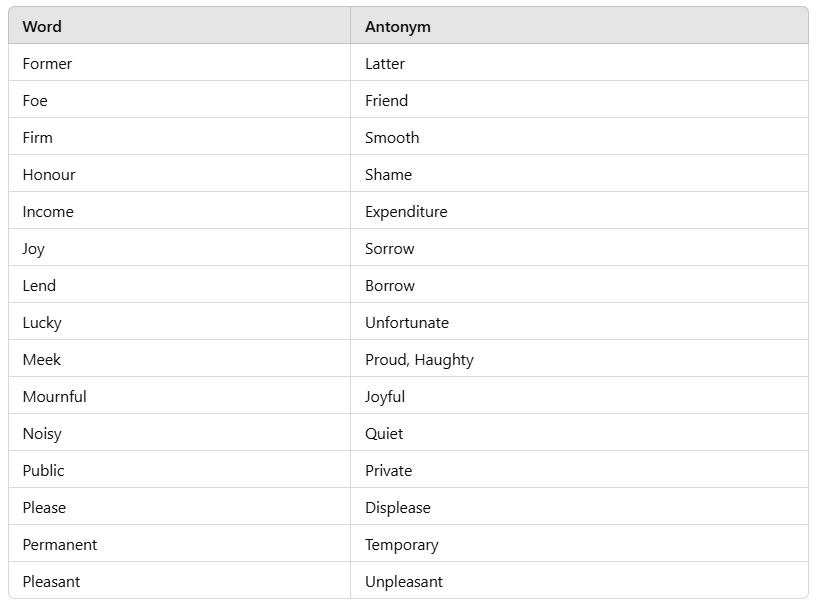
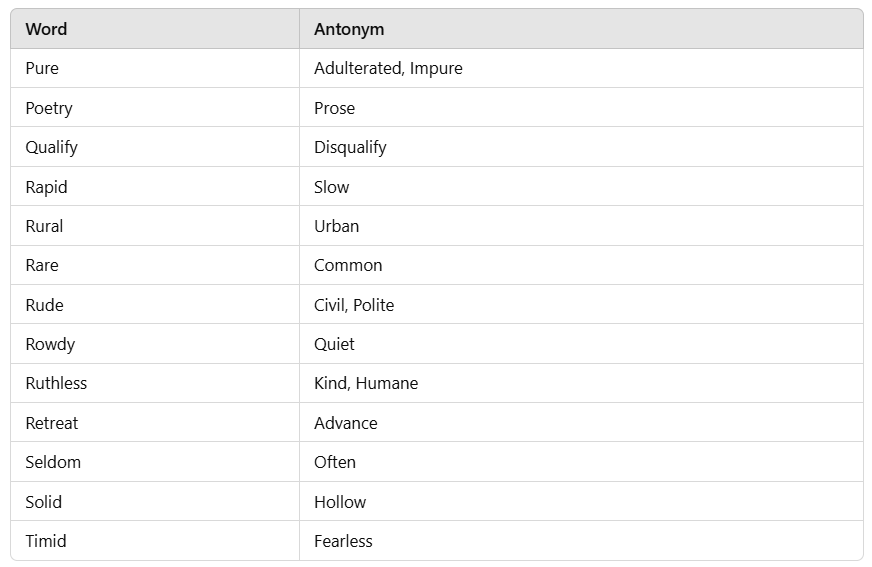
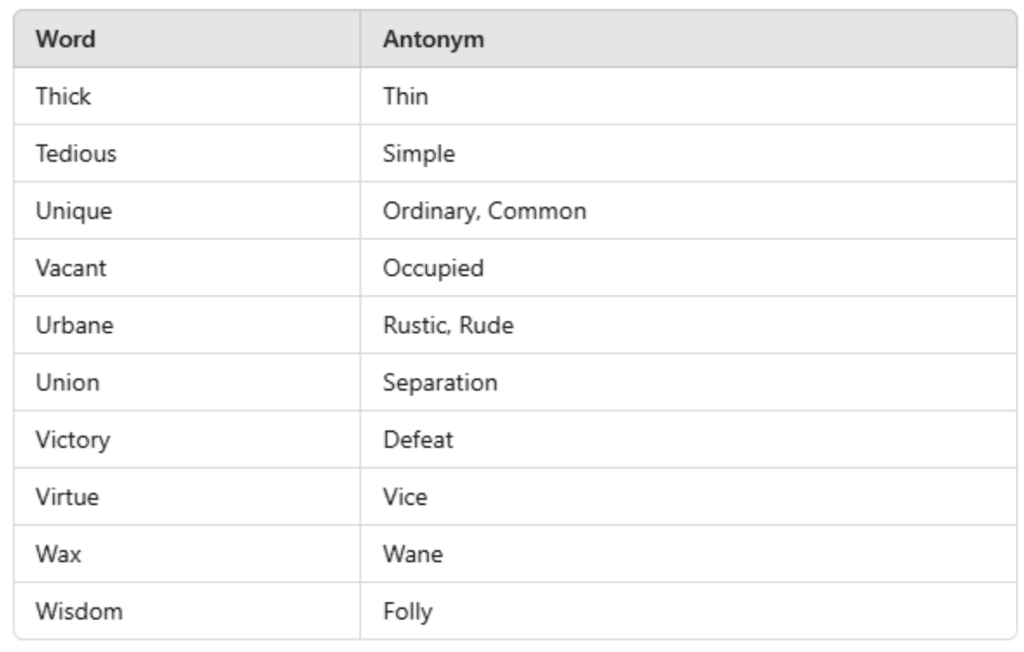
The document Antonyms - Vocabulary | English Class 8 is a part of the Class 8 Course English Class 8.
All you need of Class 8 at this link: Class 8
|
36 videos|330 docs|56 tests
|
FAQs on Antonyms - Vocabulary - English Class 8
| 1. What is an antonym? |  |
Ans. An antonym is a word that has the opposite meaning of another word. For example, "hot" is an antonym of "cold," and "happy" is an antonym of "sad."
| 2. Why are antonyms important in language? |  |
Ans. Antonyms are important because they help to enrich vocabulary and improve communication. They allow speakers and writers to express contrasting ideas clearly and effectively, enhancing the overall understanding of language.
| 3. How can I find antonyms for words? |  |
Ans. You can find antonyms using a thesaurus, which lists words along with their synonyms and antonyms. Additionally, many online dictionaries and language resources offer antonym suggestions for various words.
| 4. Can you provide examples of common antonyms? |  |
Ans. Yes, some common examples of antonyms include "big" and "small," "light" and "dark," "fast" and "slow," as well as "rich" and "poor." These pairs illustrate how opposites can convey different meanings.
| 5. How do antonyms enhance writing? |  |
Ans. Antonyms enhance writing by adding depth and contrast to the text. They allow writers to present conflicting ideas, create tension, and engage readers more effectively by providing a fuller picture of the subject matter.
Related Searches

















